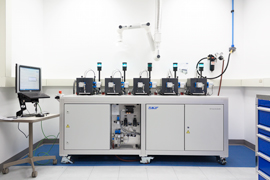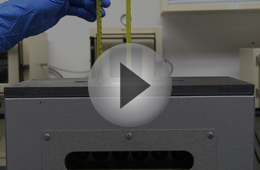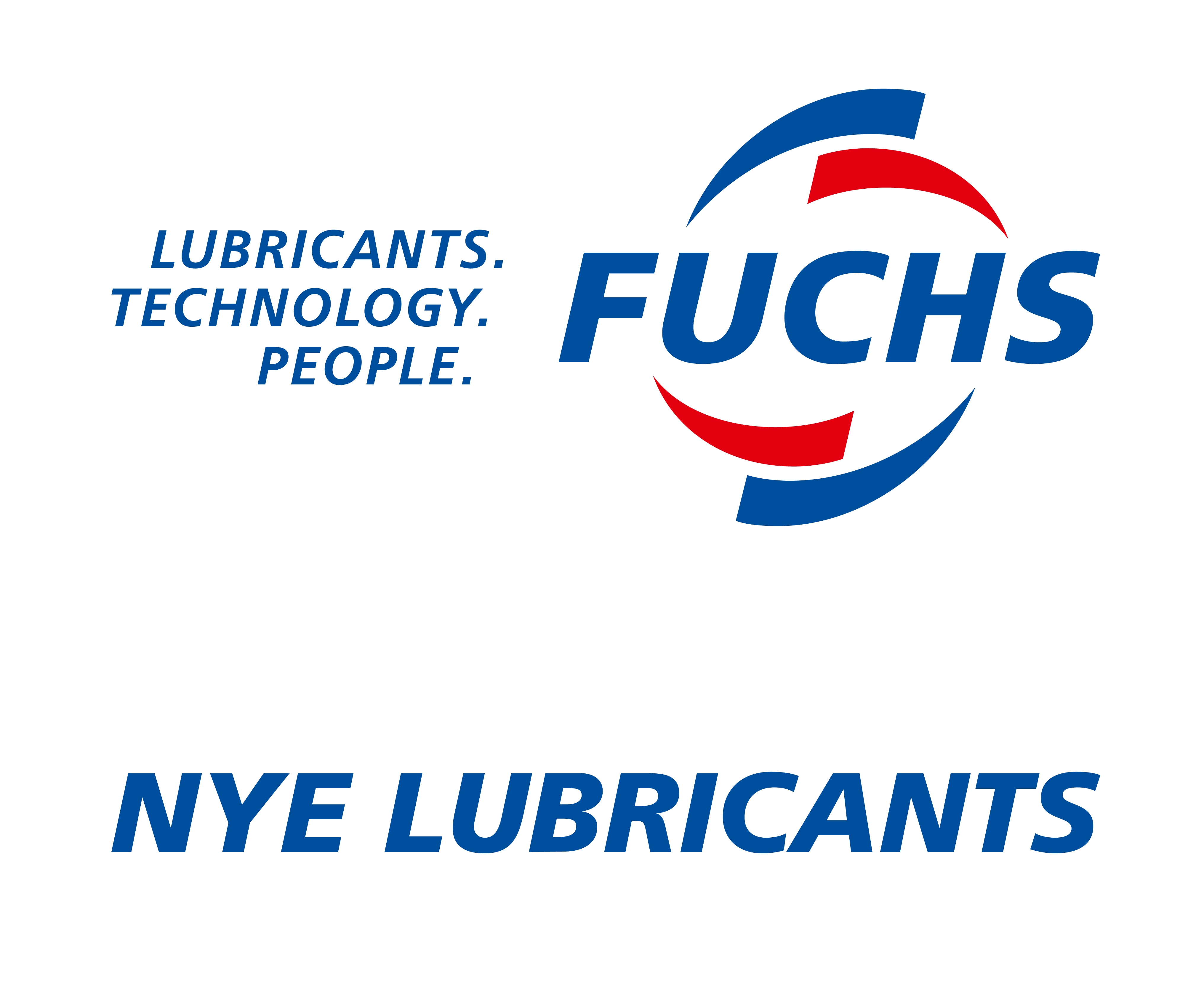Bridging the Gap in Tribology with Technology
 Mini Traction Machine Comes to Nye
Mini Traction Machine Comes to Nye
 Nye’s Applied Science and Tribology Lab (ASTL) has continued to expand its capabilities in testing and characterization of tribological applications with the acquisition of a Mini Traction Machine (MTM). The MTM is very different from conventional tribometers like a 4-Ball or SRV, as it measures frictional properties in a wide variety of rolling/sliding conditions. This is critical to simulating applications like rolling element bearings and gears. Through the flexibility of the MTM, very complex tribological tests can be performed on range of materials, from metals and plastics to soft contacts.
Nye’s Applied Science and Tribology Lab (ASTL) has continued to expand its capabilities in testing and characterization of tribological applications with the acquisition of a Mini Traction Machine (MTM). The MTM is very different from conventional tribometers like a 4-Ball or SRV, as it measures frictional properties in a wide variety of rolling/sliding conditions. This is critical to simulating applications like rolling element bearings and gears. Through the flexibility of the MTM, very complex tribological tests can be performed on range of materials, from metals and plastics to soft contacts.
![]()
Grand Opening of the Applied Science and Tribology Lab
 The Applied Science and Tribology Lab (ASTL) at Nye Lubricants was developed to bridge the expertise in our R&D group, where new lubricants are formulated, and the Application Development and Validation Testing (ADVT) lab, where application simulation and pre-validation test development is the focus. The ASTL group will be focused on simulating application contact mechanics to better understand the critical relationships between materials, contact geometries, and tribological film formation.
The Applied Science and Tribology Lab (ASTL) at Nye Lubricants was developed to bridge the expertise in our R&D group, where new lubricants are formulated, and the Application Development and Validation Testing (ADVT) lab, where application simulation and pre-validation test development is the focus. The ASTL group will be focused on simulating application contact mechanics to better understand the critical relationships between materials, contact geometries, and tribological film formation.
![]()
New Bearing Tester Arrives at Nye
 The ROF+ is a high temperature and high speed bearing test rig that will allow Nye engineers to evaluate the performance of our lubricants in an applied tribological manner. From this testing, we will gain a better understanding of the capability of our lubricants under various bearing performance conditions, which will allow us to evaluate criteria like energy consumption, torque, service limits, and ultimately lubricant life probabilities.
The ROF+ is a high temperature and high speed bearing test rig that will allow Nye engineers to evaluate the performance of our lubricants in an applied tribological manner. From this testing, we will gain a better understanding of the capability of our lubricants under various bearing performance conditions, which will allow us to evaluate criteria like energy consumption, torque, service limits, and ultimately lubricant life probabilities.
![]()
 Lubricant Testing 101 - Dropping Point
Lubricant Testing 101 - Dropping Point
 The test featured in this video is Dropping Point, also known as ASTM Method D-2265. The dropping point of a grease is the temperature at which it passes from a semi-solid to a liquid state. The dropping point test determines the cohesiveness of the oil and thickener of a grease. Dropping point tests are used for quality control to verify that the soap structure has been formed correctly and will withstand high temperatures.
The test featured in this video is Dropping Point, also known as ASTM Method D-2265. The dropping point of a grease is the temperature at which it passes from a semi-solid to a liquid state. The dropping point test determines the cohesiveness of the oil and thickener of a grease. Dropping point tests are used for quality control to verify that the soap structure has been formed correctly and will withstand high temperatures.

